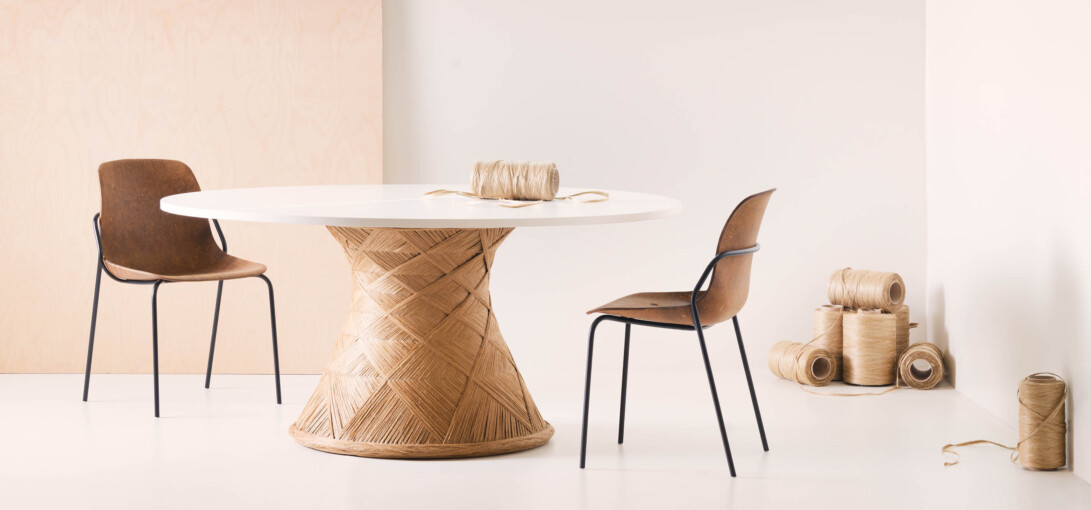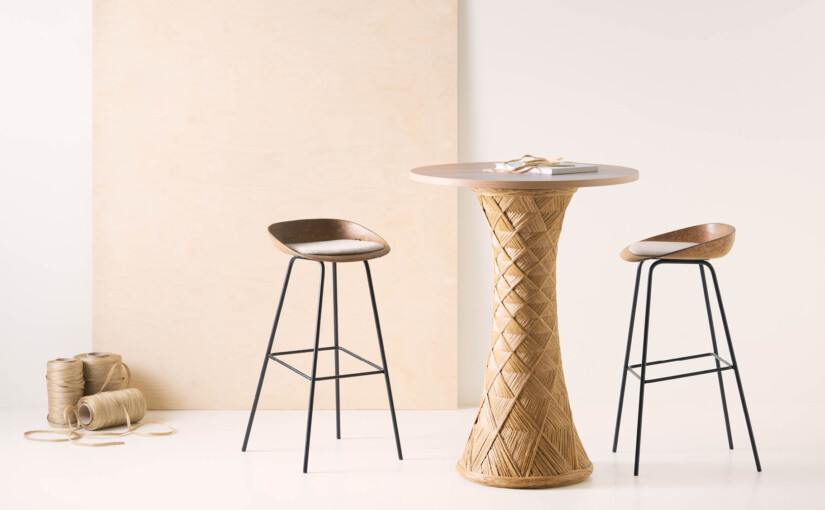Would you like to get in touch?
Call or email us, we’d love to talk to you!
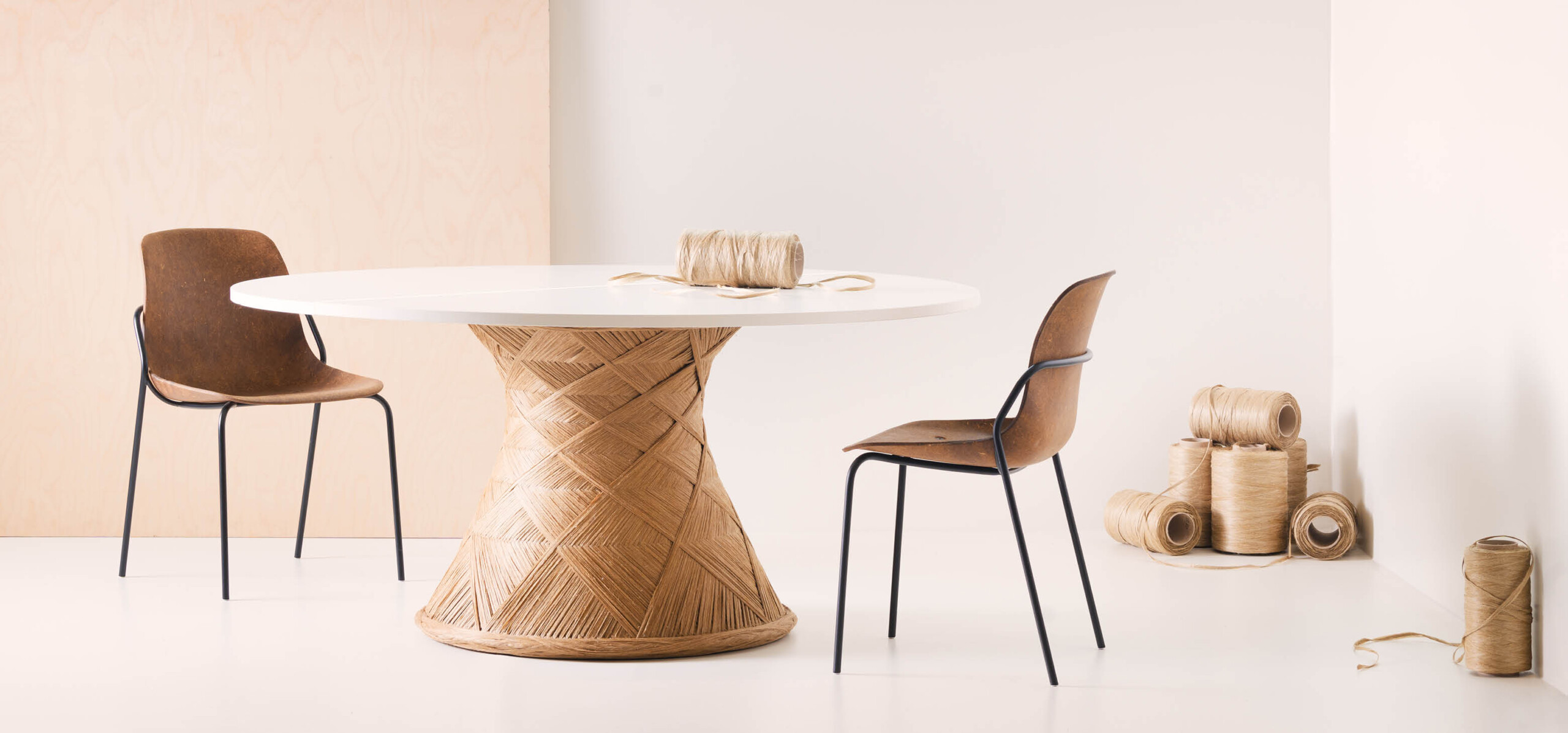
Flax
Flax thread as raw material for new column frame
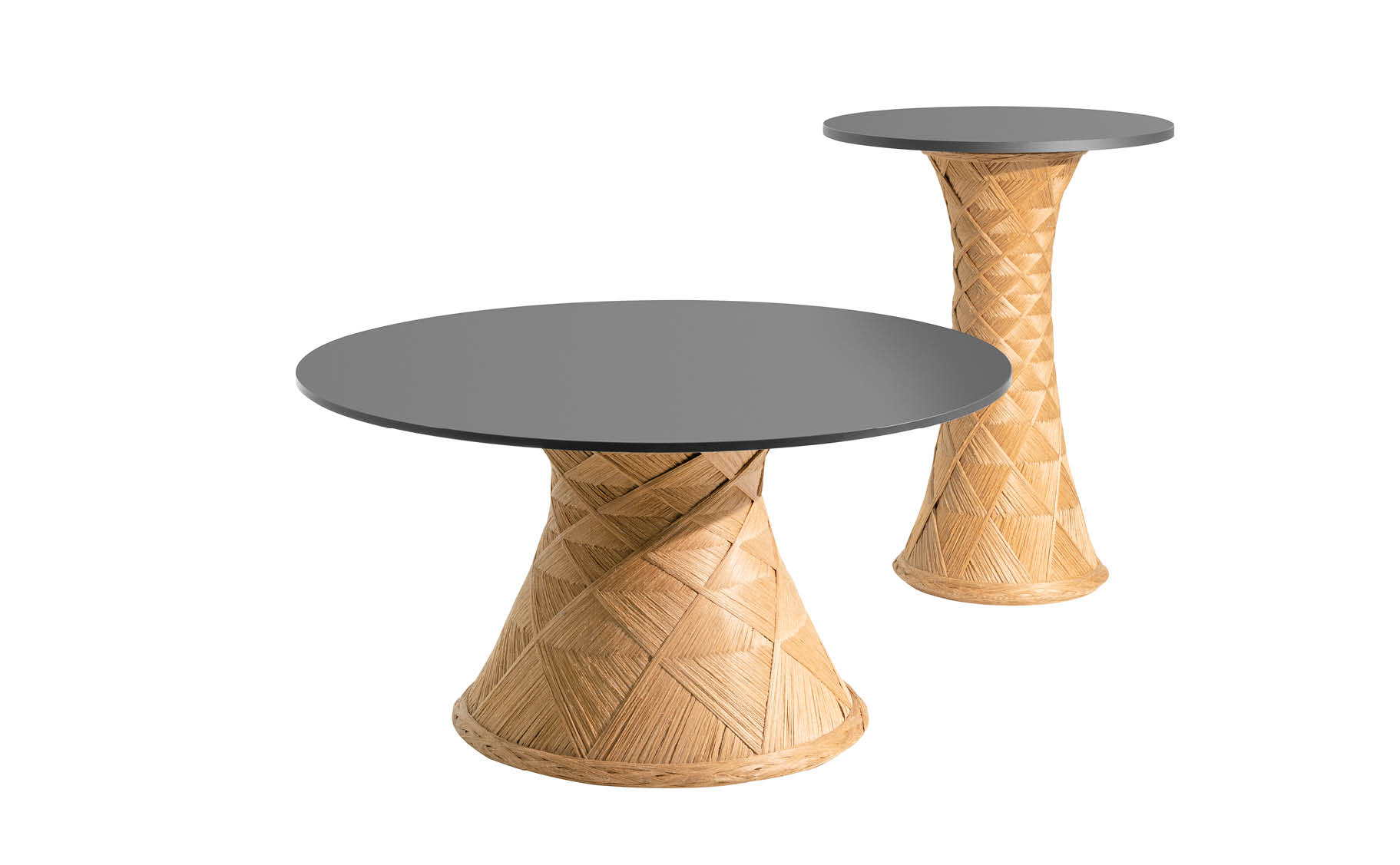
The Flax table range is available in two heights: standard height and standing height.
The Flax column frame – like the Hemp chair shell – is completely plant-based, organic and recyclable. The frame is made of flax and a bio-resin produced in a way that is unlike any other. Filament winding involves winding a fibre thread – in this case flax – under tension over a rotating mould. The result is a gorgeous one-of-a-kind 3D wound column frame on which a tabletop is mounted.
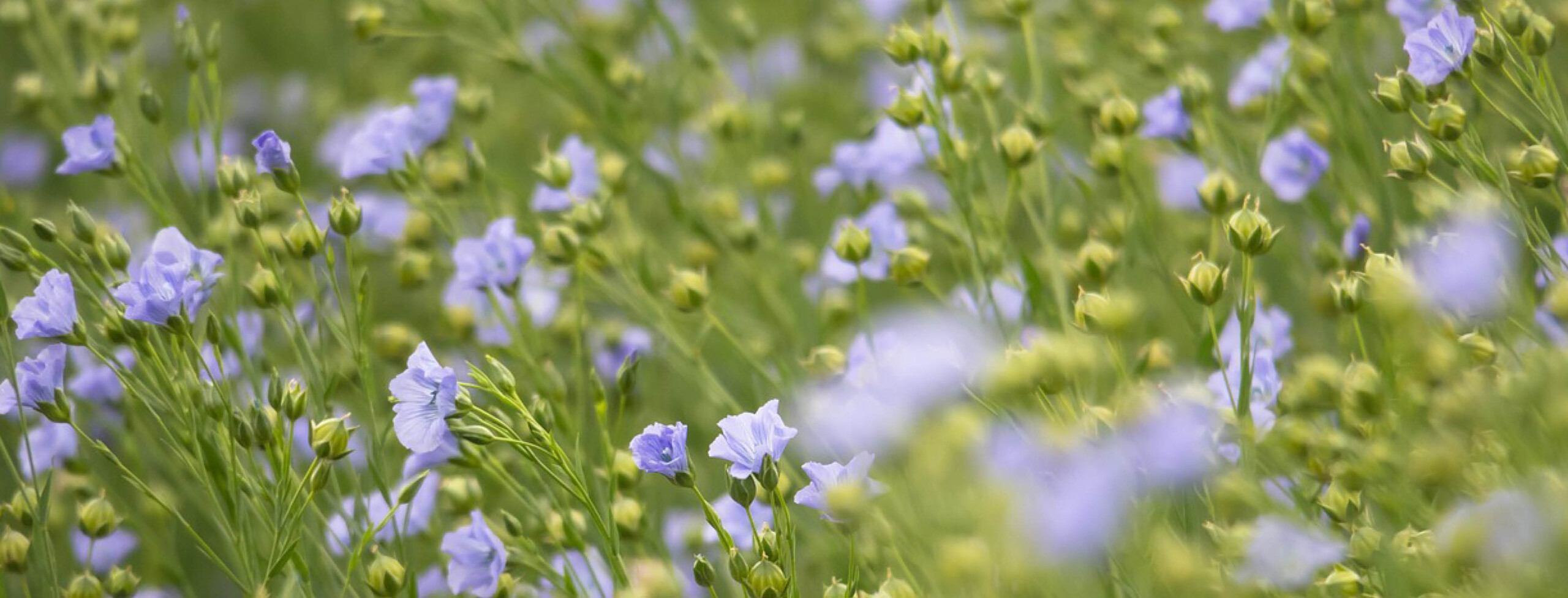
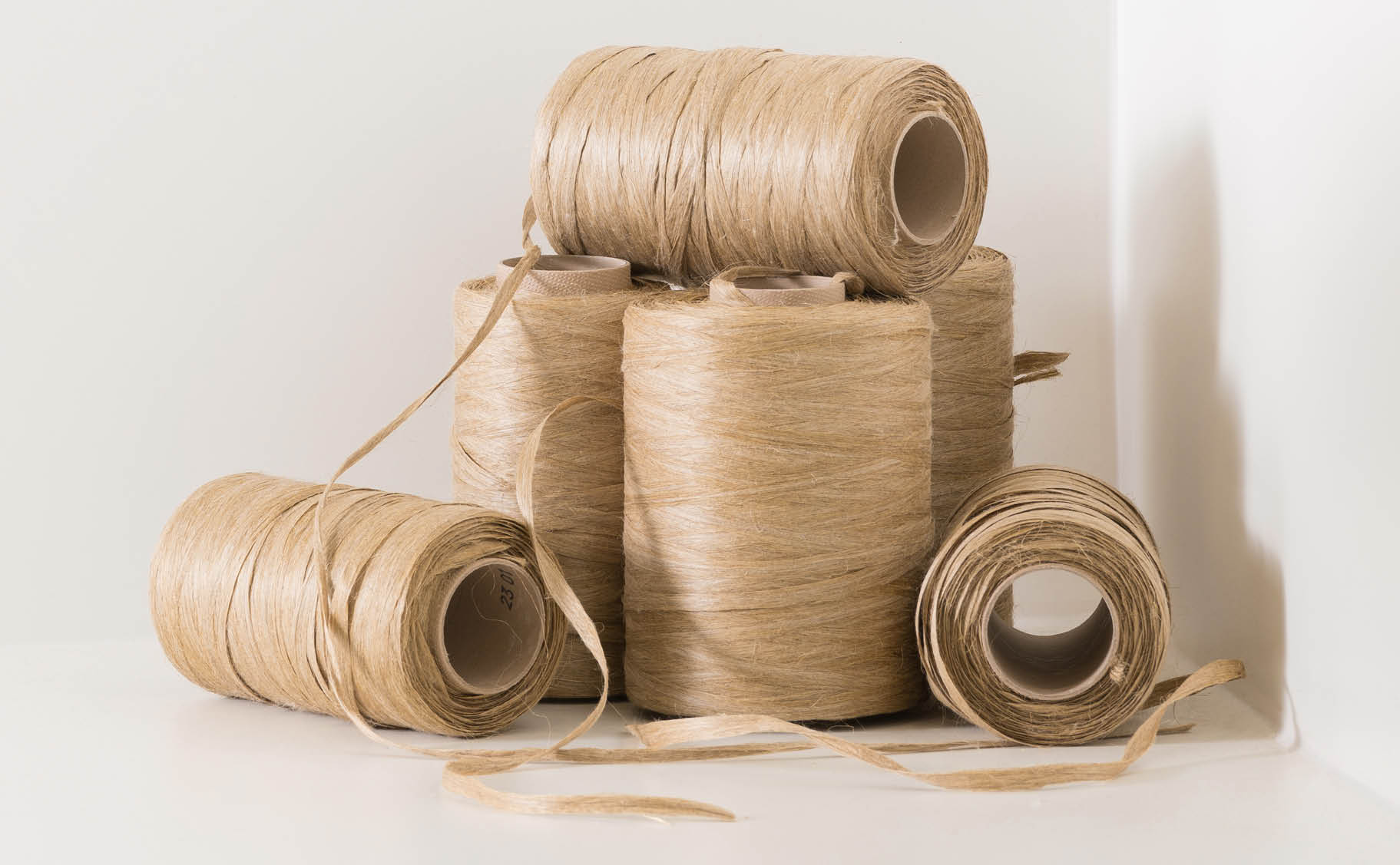
The raw material
The product’s name says it all. The main raw material of the table is flax. Flax and hemp are often compared. Both plants are extremely tough, native to the region and can be harvested within a few months of sowing. That’s as far as similarities go because the plants are nothing alike in appearance. Whereas hemp can easily grow three to four metres tall, flax is a small and slender plant of about 50 cm high with delicate blue flowers.
The process
Flax is sown somewhere around March/April. The violet flowers are seen in the field by the end of June. Mid-July, the plant is ‘pulled’. This means the plant is lifted from the ground by a machine, root and all, to retain the longest possible fibre. The plant is then laid flat on the land. The fact that the flax is not immediately removed from the field has to do with retting (exposing it to water so that the fibres are released). By mechanically scutching the retted flax (that is, removing the wood from the fibre), the soft, long fibre is released. These are the big round bundles you see in the fields.
The flax is then spun.
The combing machines are equipped with increasingly fine needles, so the flax fibres are separated more and more precisely. After this, the fibres are picked up and laid crosswise on a spreader. This creates a combed linen ribbon. They are then stretched around a core to create a coil of flax thread.
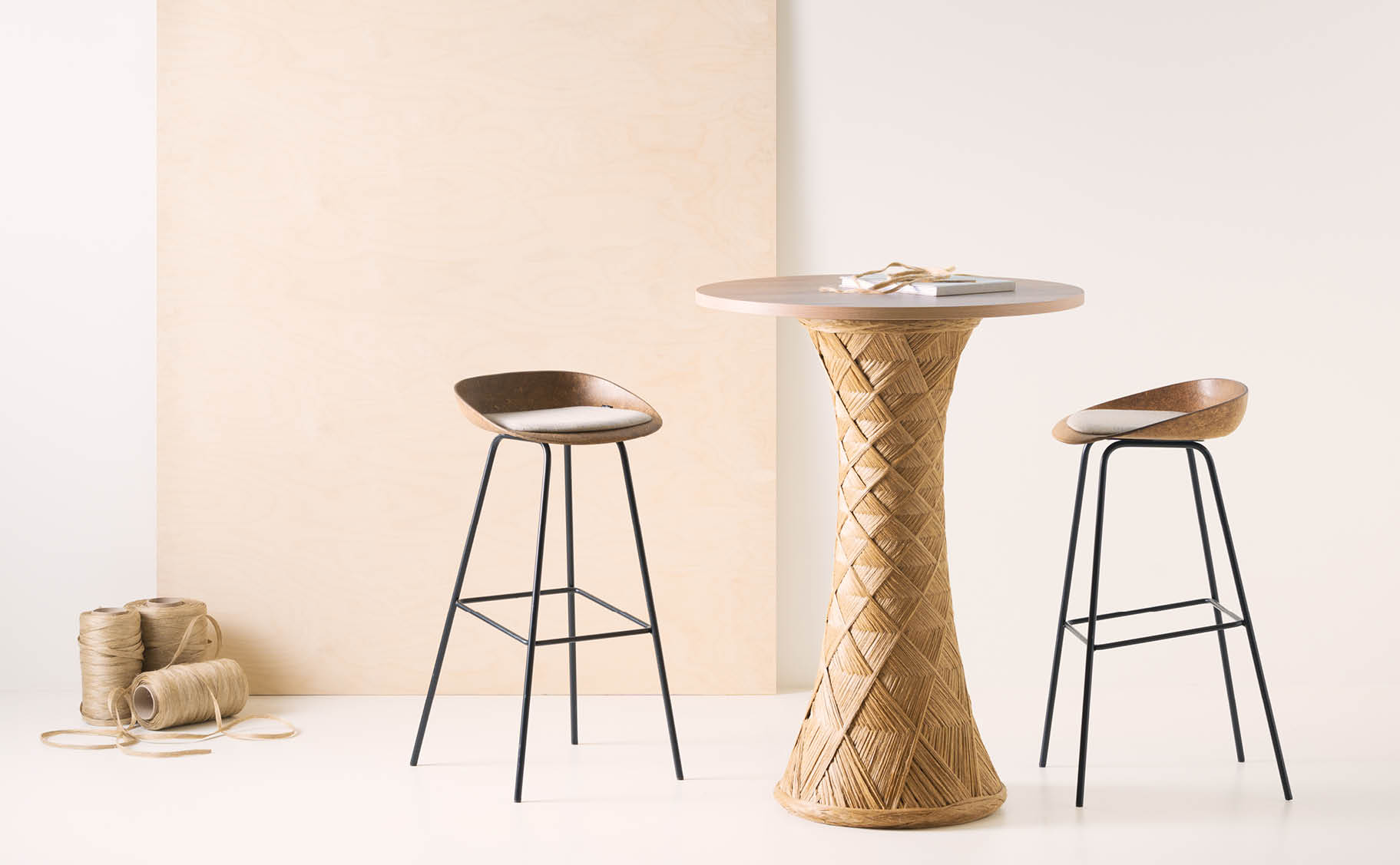
The production
The flax thread is put on a pulley at our production site in Emmen and passed through a bath of bio-resin. The soaked flax thread is then stretched around a mould by filament winding. The wrapped product is then baked complete with mould. After baking, the mould is removed and the table top is mounted on the column frame. The flax is not processed any further.
Product information
Flax is a modern table range for visitor, meeting and conference rooms and also suitable for use in offices.
Specifications
- frame: flax and Plantics bio-resin thread
- table top: 25 mm thick
Ø 140 cm (at height 75 cm ), Ø 80 cm (at height 110 cm) - table height: 75 cm and 110 cm.
- fastening material powder-coated black RAL 9011
Materials – tops
- 25 mm PEFC melamine with LaserTec edge finish
- 25 mm PEFC HPL with LaserTec edge finish
- colours in accordance with colour charts “Décors – Core collection” and “Décors – Trend collection”
For full specifications of table Flax: see product sheet under “Documents”.
Options
- none

LaserTec
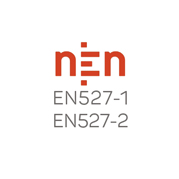
NEN
Flax is locally designed, developed and produced.
Local production: Vepa distinguishes itself by producing everything in its own, local facilities. Our own wood, sheet steel, tubular steel, powder coating, wood spray, upholstery and final assembly departments form a complete production circle within a single company. By producing close to the sales market we keep distances small and CO2 emissions minimal.
LCA: By using independent LCAs (life cycle analysis) we reveal the environmental impact of a product. In product development we can greatly improve later designs by carrying out an LCA in the initial phase. In addition, an LCA also provides insight into the main factors responsible for the environmental damage. We then use these factors as starting points for redesign or as focal points for improvement. The LCAs are carried out in accordance with ISO 14044.
FSC® and PEFC: Vepa only uses certified wood. The FSC® and PEFC labels stand for responsible and sustainable forest management. Responsible forest management meets three criteria: it takes account of the environment, respects social aspects (such as the rights of local communities and forest workers) and is economically viable. Moreover, wood is the number one bio-based resource by nature.
TPAC (Timber Procurement Assessment Committee): Timber to be supplied or timber processed in products to be supplied must comply with the Dutch Procurement Criteria for Timber according to the Socially Responsible Procurement criteria. FSC® and PEFC are both systems that have been approved by the Dutch state secretary.
SRP criteria: Vepa complies with the SRP criteria drawn up by the central government. The national criteria for socially responsible procurement (SRP) for office furniture are available via the SRP criteria tool (https://www.mvicriteria.nl/en/webtool).
Images
Enthusiastic?
Do you have a question or comment about this product? Leave your message below and one of our colleagues will contact you as soon as possible.






